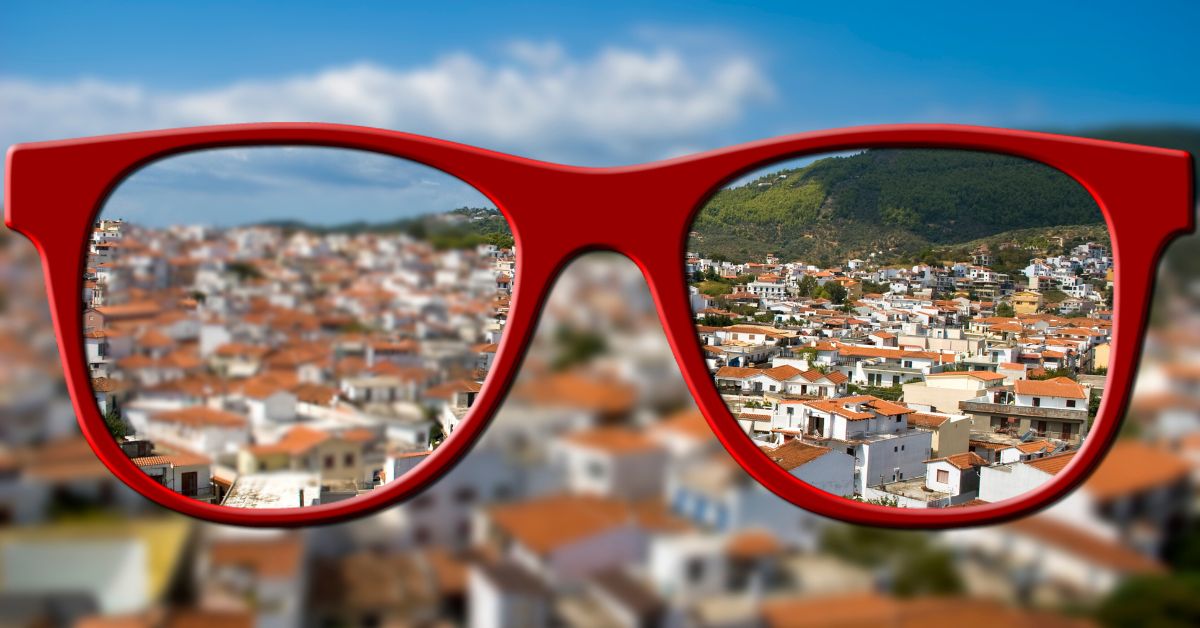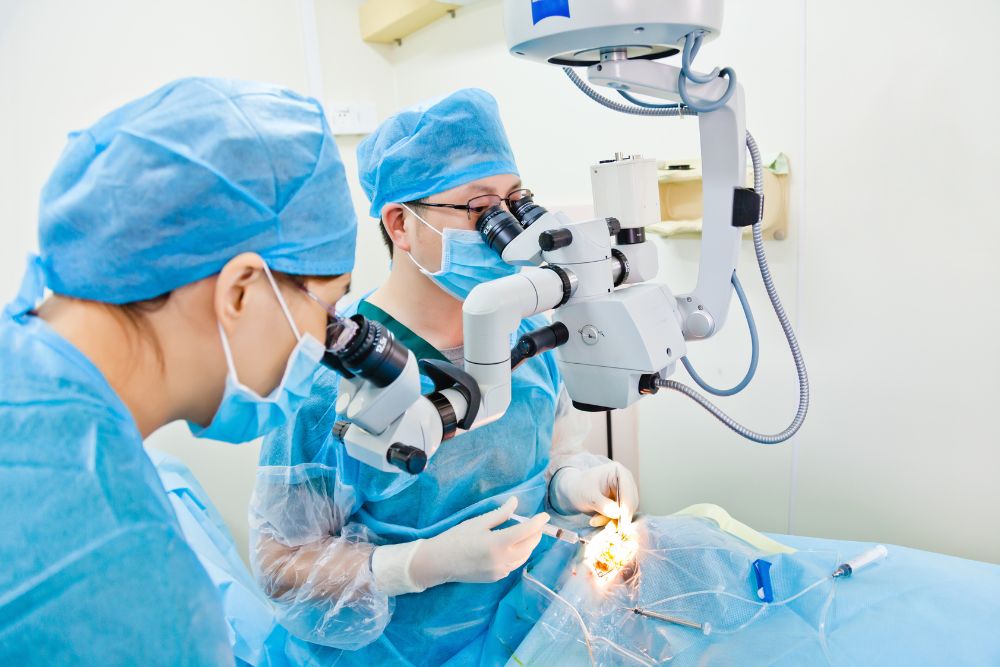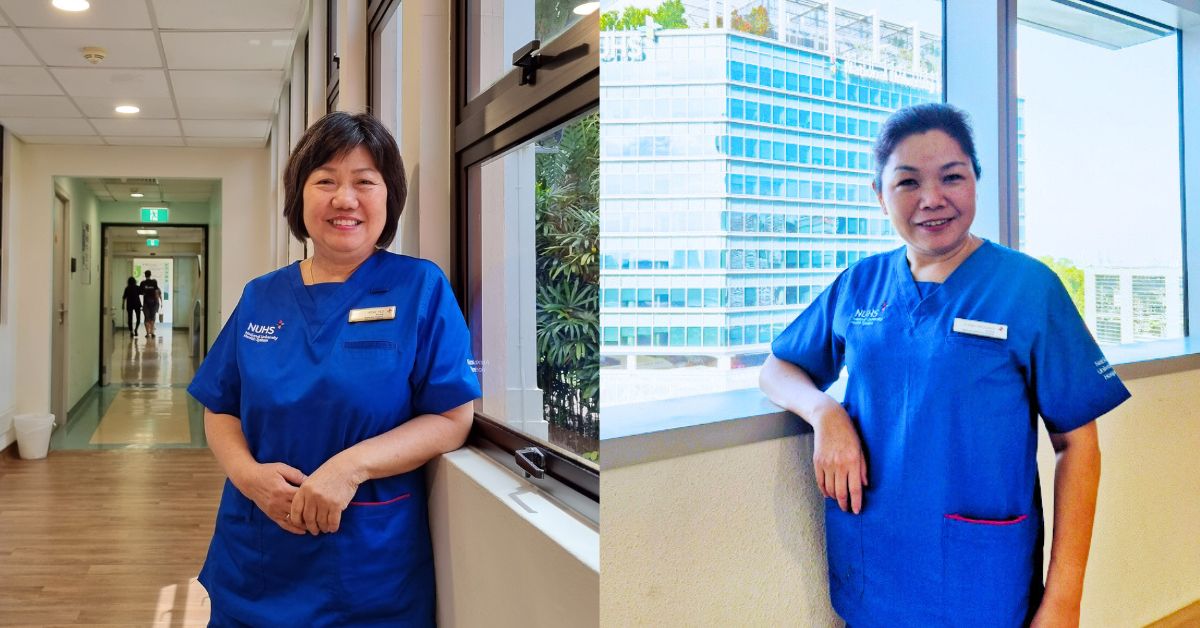
It’s common to get cataract surgery in Singapore when we get older. But did you know there are different types of lenses you can choose from, depending on what vision issues you’d like to fix?
Dr Hazel Anne Lin, Consultant, Department of Ophthalmology, National University Hospital, says cataract refers to the presence of clouding of the natural lens in the eye.
“In the early stages, many individuals have no symptoms or may experience only mild blurring of vision or glare,” she explains. “This can be conservatively managed with observation, refractive correction with spectacles and sunglasses when outdoors to reduce glare.
“As cataracts become more visually significant, surgery can be performed to remove the cloudy lens and replace it with an intraocular lens,” she adds.
Dr Lin says the prevalence of cataracts increases with age and, by the age of 65, over 90% of individuals would have started to develop them. There are also some conditions which can predispose an individual to developing cataracts, such as trauma to the eye, chronic eye inflammation (uveitis) and issues such as diabetes and use of systemic steroids.
Advertisement
Symptoms of cataracts include clouded, blurred or dim vision, seeing ‘halos’ around lights, fading/yellowing of colours, sensitivity to light and glare, as well as trouble seeing at night.
Note that there is no scientifically-proven way to prevent cataracts but you should wear sunglasses regularly to protect your eyes from ultra-violet light. You should also have regular eye exams so any other eye issues can be detected at an earlier stage. Plus, look after your eye health: have a balanced diet, quit smoking, reduce alcohol intake and treat diseases such as diabetes.
When to get cataract surgery in Singapore

Dr Cheryl Lee from The Eye Clinic says that neither eye drops nor oral medications can cure cataracts and the time to consider surgery is “when it affects your quality of life”. The good news is, you’ll only have to do this once in your life for each eye as cataracts do not regenerate.
The surgery takes around 15 minutes but you won’t have to wait till your vision is badly affected to get it done.
With the advances in cataract surgery, cloudy and blur vision due to cataracts can now be treated at an earlier stage. Patients no longer need to wait until the cataract 'ripens' before they can go through surgery,
Dr Lee explains.
Dr Lee adds that most patients choose to have it done under a mild sedation, “so that eliminates fear or any pain”. They also take this opportunity to correct other conditions such as myopia, long-sightedness, presbyopia and astigmatism.
According to Dr Lin, the most common type of cataract surgery is phacoemulsification, which involves using ultrasonic waves to fragment the lens into small pieces before it is removed via vacuum suction through a small incision that’s less than 3mm. An intraocular lens (IOL) is then implanted into the eye following cataract removal.
She adds that laser-assisted cataract surgery is also available in Singapore.
Lens options for cataract surgery in Singapore
Before your cataract surgery, you should discuss with your ophthalmologist which type of IOL is most suitable for you. There are four main types of cataract IOLs you can choose from:
- Monofocal lens
This common lens implant allows patients to have clear vision for a single focal distance. It’s ideal if you want myopia correction. It’s also suitable for patients with pre-existing ophthalmic conditions such as glaucoma, diabetic retinopathy and age-related macular degeneration.
The limitation of monofocal lens is the need for spectacles after surgery,
Dr Lin explains.
"For example, if a patient chooses a monofocal lens for distance correction, they will be able to view distant objects well but will need reading glasses for near tasks such as reading."
Therefore, if you choose distance correction, you’ll enjoy clear distance vision such as viewing street signs and bus numbers. Intermediate distance correction is good for distances such as computer work and viewing the dashboard in a car. And near correction provides good quality of vision for near tasks such as reading, sewing and drawing.
- Multifocal lens (MFIOL)
As its name suggests, these lenses have different powers at different zones of the lens, thus allowing a wide range of vision, from distance to intermediate to near. With multifocal lenses you won’t have to use spectacles anymore, but Dr Lin says the downside is that they are more prone to glare and halos, especially at night.
They also reduce contrast sensitivity and usually require an individual to read in brighter conditions. Individuals with certain pre-existing ophthalmic conditions may not be suitable to have MFIOL implantation,
she adds.
- Extended depth of focus (EDoF) lens
You’ll enjoy a larger range of clear vision from distance to intermediate as compared to a monofocal lens, thanks to an elongated point of focus in such lenses. Other advantages include reduced glare, halos and starbursts as compared to MFIOL, but you’ll still need to use spectacles for near vision.
Dr Lin says that individuals with certain pre-existing ophthalmic conditions may not be suitable to have EDoF lens implantation.
- Toric lens
If astigmatism correction is your goal, this is the lens for you. Toric lenses are available in monofocal, multifocal and extended depth of focus options. But you should also be aware of the risk involved, albeit a rare one.
Toric lenses can rotate in the eye after surgery, which can cause a decrease in quality of vision, but this is a rare occurrence,
Dr Lin elaborates.
"If this is unable to be corrected satisfactorily with spectacles, the individual may require secondary procedures for correction."
While lens implants don’t need to be changed or replaced, there is a possibility of the lens capsule holding the IOL becoming cloudy, resulting in a drop in vision. If this does happen, it would be months or years after your cataract surgery. This fuzzy vision can be treated via a straightforward outpatient laser procedure known as YAG capsulotomy.
Dr Lin reveals that cataract surgery for one eye at NUH costs from $4,000, depending on the nature of surgery. Dr Lee says cataract surgery at her clinic is priced “about $6,000” per eye.
Singaporeans and permanent residents can claim up to $2,450 per eye from their Medisave account or an immediate family member’s Medisave account. Most insurance policies cover cataract surgery so check with your insurer before you book a date. While the amount you can claim depends on the cover under your policy, it is possible to claim the amount in full.
More information on cataract surgery costs can be found on the Ministry of Health’s website.
It’s important to look after your vision regardless of age but if you need cataract surgery in Singapore, know that it’s a common and safe surgery and there are plenty of options to suit your needs.






